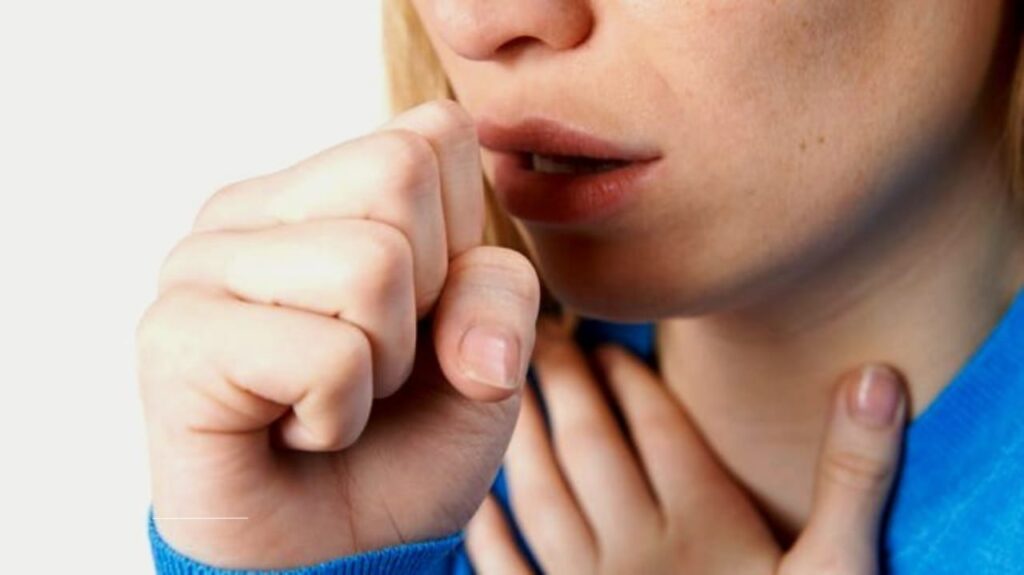
Whooping cough, known medically as pertussis, is often dismissed as a relic of the past—a harsh-sounding cough your grandparents might mention. But this bacterial infection, caused by Bordetella pertussis, remains a modern-day threat. Despite widespread vaccination, outbreaks still occur, and the complications can be severe, even life-threatening.
What makes whooping cough so dangerous isn’t just the relentless coughing fits but the domino effect it triggers in the body. From infants struggling to breathe to adults developing cracked ribs, the risks vary by age and health status. Let’s break down what happens when whooping cough strikes, why certain groups are more vulnerable, and how to recognize warning signs before complications escalate.
What Is Whooping Cough?
Before diving into complications, it helps to understand the infection itself. Whooping cough spreads through respiratory droplets when an infected person coughs or sneezes. Early symptoms mimic a common cold—runny nose, mild cough, and low fever—making it easy to miss. After 1–2 weeks, the “paroxysmal stage” begins: violent, rapid coughing fits followed by a high-pitched “whoop” sound as the person gasps for air. These fits can last weeks, earning pertussis the nickname “the 100-day cough.”
While the coughing is exhausting, the real danger lies in the secondary effects. Let’s explore how the body reacts—and why some groups face higher stakes.
Complications in Infants and Young Children
Infants under 6 months are the most vulnerable to severe complications. Their small airways and immature immune systems struggle to fight the infection, leading to hospitalization in about 50% of cases (CDC, 2023). Here’s what can go wrong:
1. Apnea (Pauses in Breathing)
During coughing fits, infants may stop breathing temporarily. Apnea can lead to oxygen deprivation, which, in severe cases, causes brain damage.
2. Pneumonia
Up to 20% of infant pertussis cases develop pneumonia, the leading cause of death in this age group. The bacteria weaken the lungs, making them prone to secondary infections.
3. Seizures and Encephalopathy
Oxygen deprivation or toxins from the bacteria can trigger seizures or brain inflammation (encephalopathy). Long-term neurological damage is rare but possible.
4. Weight Loss and Dehydration
Persistent vomiting after coughing fits makes it hard for infants to feed, leading to malnutrition.
5. Death
Though rare in vaccinated populations, whooping cough kills roughly 1% of hospitalized infants. Most deaths occur in babies younger than 3 months.
Case Study: A 2021 report in Pediatrics described a 2-month-old admitted for apnea and cyanosis (bluish skin). Despite antibiotics and oxygen therapy, the infant developed pneumonia and required mechanical ventilation.
Complications in Older Children and Adolescents
Children over 6 months face fewer life-threatening risks, especially if vaccinated, but the physical toll is significant:
1. Rib Fractures and Hernias
Severe coughing can fracture ribs or cause abdominal hernias. A 10-year-old in Ohio made headlines in 2022 after coughing so hard he fractured two ribs.
2. Middle Ear Infections
Forceful coughing can push bacteria into the Eustachian tubes, leading to ear infections.
3. School Absenteeism
Recovery takes weeks, disrupting education and social activities.
Complications in Adults
Adults often assume they’re immune, but immunity from childhood vaccines wanes. Complications here are less deadly but debilitating:
1. Syncope (Fainting)
Intense coughing reduces blood flow to the brain, causing brief fainting spells.
2. Urinary Incontinence
Pressure from coughing strains pelvic muscles, leading to urine leakage—a particularly distressing issue for women.
3. Sleep Deprivation
Nighttime coughing fits disrupt sleep, exacerbating stress and weakening immunity.
4. Costochondritis
Inflammation of rib cartilage causes chest pain, often mistaken for a heart attack.
Expert Insight: Dr. Sarah Lee, an infectious disease specialist, notes, “Adults with pertussis are often misdiagnosed with bronchitis. By the time we confirm it, they’ve already spread it to vulnerable family members.”
Risks for the Elderly and Immunocompromised
Seniors and those with chronic conditions (e.g., COPD, asthma) face compounded risks:
1. Worsening of Pre-Existing Conditions
Pertussis can trigger COPD flare-ups or asthma attacks, requiring emergency care.
2. Hospitalization
Adults over 65 account for 15% of pertussis-related hospitalizations in the U.S.
Diagnosis Challenges
Delayed diagnosis fuels complications. Early-stage pertussis resembles a cold, and PCR tests are most accurate in the first 3 weeks. By the time the “whoop” appears, the bacteria may have already damaged the airways.
Treatment and Management
Antibiotics like azithromycin can reduce spread but must start early. After the paroxysmal stage begins, treatment focuses on symptom relief:
- Hydration and Nutrition: Small, frequent meals to prevent dehydration.
- Humidifiers: Moist air soothes irritated airways.
- Hospitalization: Required for infants with apnea or breathing difficulties.
Prevention: The Best Defense
1. Vaccination
The DTaP vaccine (for children) and Tdap booster (for teens and adults) reduce severity. Maternal vaccination during pregnancy passes antibodies to newborns.
2. Cocooning
Vaccinating everyone around infants creates a protective “cocoon.”
3. Hygiene Practices
Covering coughs and handwashing limit spread.
Statistic: The CDC estimates Tdap prevents 7 million cases yearly in the U.S.
Case Studies: Real-Life Impacts
- A Family Outbreak (2019): An unvaccinated toddler in California spread pertussis to her parents and newborn brother. The infant spent two weeks in the NICU.
- Senior Complications: A 70-year-old with asthma developed pneumonia post-pertussis, leading to a month-long hospitalization.
